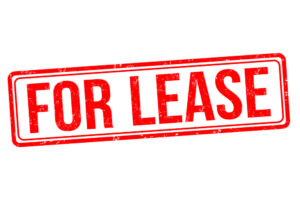
2024 Guide -Commercial Conveyancing Contracts
Are you looking to buy or sell commercial property in Queensland? If so, it’s important to have a solid understanding of the different contracts and agreements involved in commercial Conveyancing. These legal documents can be complex and overwhelming, but with the right guidance, you can navigate the process with confidence.
• Heads of terms are a preliminary document that outlines the key terms of a commercial property transaction.
• Sale agreements are legal documents that outline the terms of the sale of a commercial property.
• Leases are legal documents that set out the terms of the lease of a commercial property.
• When negotiating a deal, it’s important to pay attention to key terms such as purchase price, conditions precedent, warranties, indemnities, limitation of liability, and termination.
• It’s recommended to seek the advice of a lawyer when engaging in commercial conveyancing.
In this comprehensive guide, we’ll explore the different QLD contracts and agreements involved in commercial conveyancing, including heads of terms, sale agreements, and leases. We’ll also discuss the key terms you need to know and what to look out for when negotiating a deal. So, let’s get started!
Learn about the different QLD contracts and agreements involved in commercial conveyancing, including heads of terms, sale agreements, and leases. Discover the key terms you need to know and what to look out for when negotiating a deal.
Commercial conveyancing can be a complex process, and it’s important to understand the different contracts and agreements involved in order to navigate it successfully. This guide will provide an overview of the three main types of contracts and agreements involved in commercial conveyancing in QLD: heads of terms, sale agreements, and leases.
Understanding Heads of Terms in Commercial Conveyancing
Heads of terms are a type of contract used in the early stages of a commercial conveyancing transaction. They are also known as letters of intent, memorandums of understanding, or term sheets. The purpose of heads of terms is to outline the main points of a potential transaction, such as the price, the property description, and any special conditions.
What are Heads of Terms?
Heads of terms are not legally binding, but they are an important tool for negotiating a deal. They can help to identify any potential issues early on and ensure that all parties are on the same page before moving forward with a more formal contract.
Key Terms to Look Out for in Heads of Terms
When reviewing heads of terms, it’s important to pay attention to the following key terms:
• Price: The purchase price or rent amount should be clearly stated, as well as any deposit or other payments required.
• Property Description: The property address and any special conditions or restrictions should be clearly stated.
• Conditions: Any conditions of the transaction should be clearly outlined, such as any contingencies, warranties, or other requirements.
• Timing: The expected timeline for the transaction should be clearly stated, including any deadlines or key dates.
• Confidentiality: If necessary, the heads of terms may include a confidentiality clause to protect sensitive information.
Understanding Sale Agreements in Commercial Conveyancing
Sale agreements are a more formal type of contract used to transfer ownership of a commercial property from the seller to the buyer. They are legally binding and outline the specific terms of the transaction.
What is a Sale Agreement?
Sale agreements typically include the following elements:
• Parties: The names and addresses of the buyer and seller, as well as any agents or attorneys involved.
• Property Description: A detailed description of the property being sold, including any fixtures or fittings that are included in the sale.
• Price: The purchase price and any other financial terms of the transaction.
• Conditions: Any conditions or contingencies of the transaction, such as inspections, title searches, or financing.
• Warranties: Any warranties or representations made by the seller regarding the property, such as its condition or title.
• Closing: The date and location of the closing, as well as any requirements for the transfer of ownership.

Key Terms to Look Out for in Sale Agreements
When reviewing a sale agreement, it’s important to pay attention to the following key terms:
• Price: The purchase price and any other financial terms of the transaction, such as deposits or payments.
• Property Description: A detailed description of the property being sold, including any fixtures or fittings that are included in the sale.
• Conditions: Any conditions or contingencies of the transaction, such as inspections, title searches, or financing.
• Warranties: Any warranties or representations made by the seller regarding the property, such as its condition or title.
• Closing: The date and location of the closing, as well as any requirements for the transfer of ownership.
Understanding Leases in Commercial Conveyancing
Leases are a type of contract used to grant the right to use a commercial property for a specified period of time. They are legally binding and outline the specific terms of the lease, including the rent amount, the duration ofthe lease, and any conditions or restrictions placed on the use of the property.
When it comes to commercial conveyancing, leases can be a critical component of the process. Here are some important things to understand about leases in commercial conveyancing:
• Lease Terms: As mentioned, a lease outlines the specific terms of the agreement, including the duration of the lease and the rent amount. It may also include details about things like maintenance and repair responsibilities, restrictions on alterations to the property, and any limitations on how the space can be used. Make sure to carefully review the terms of the lease and negotiate any points that may be unclear or overly restrictive.
• Leasehold vs. Freehold: In commercial conveyancing, it’s important to understand whether a property is being sold as a leasehold or freehold. A leasehold property means that the buyer is purchasing the right to use the property for a specified period of time, as outlined in the lease agreement. A freehold property means that the buyer is purchasing full ownership of the property and the land it sits on. Understanding the difference between these two types of ownership can help you make more informed decisions during the conveyancing process.
• Lease Renewals: When negotiating a lease, it’s important to consider the option for lease renewals. This gives the tenant the right to extend the lease beyond its initial term. It’s important to understand the terms and conditions of any lease renewal options and negotiate them as part of the initial lease agreement.
• Assignment and Subletting: A lease may also include provisions for assignment and subletting, which allow the tenant to transfer their lease to another party or sublet the property to someone else. These provisions can be useful for tenants who need to vacate the property before the end of the lease term. However, they may also be subject to restrictions and conditions that should be carefully reviewed before agreeing to them.
When it comes to commercial conveyancing, leases can be complex and require careful consideration of the terms and conditions involved. Working with a qualified legal professional can help ensure that you fully understand the lease agreement and are able to negotiate the best possible terms for your situation.
What is a Commercial Lease?
A lease is a legal contract that allows one party to use a property owned by another party for a specified period of time, usually in exchange for rent payments. The lease outlines the terms and conditions of the rental agreement, including the length of the lease, the amount of rent, and any restrictions or obligations for the tenant.

Key Terms to Look Out for in Leases
When negotiating a commercial lease, there are several key terms to look out for to ensure that you are getting a fair deal. These include the following:
• Rent: This is the amount of money that the tenant will pay to the landlord in exchange for the use of the property. It is important to ensure that the rent is reasonable and reflects the value of the property.
• Length of lease: This is the duration of the lease agreement. It is important to ensure that the lease is long enough to allow you to recoup any investment made in the property, while also giving you the flexibility to exit the lease if necessary.
• Rent reviews: Rent reviews are provisions in the lease that allow the landlord to increase the rent at specified intervals. It is important to understand how rent reviews will work and how they will be calculated.
• Repair and maintenance: The lease should clearly state who is responsible for maintaining and repairing the property. This will typically include the tenant, but may also include the landlord in certain circumstances.
Key Terms to Look Out for When Negotiating a Deal
When negotiating a commercial conveyancing deal, there are several key terms to look out for to ensure that you are getting a fair deal. These include the following:
Purchase Price
The purchase price is the amount of money that the buyer will pay to acquire the property. It is important to ensure that the purchase price reflects the value of the property and that you are not overpaying.
Conditions Precedent
Conditions precedent are conditions that must be met before the contract can be completed. For example, the sale may be subject to the buyer obtaining financing or obtaining certain permits or approvals. It is important to ensure that these conditions are reasonable and achievable.
Warranties
Warranties are promises made by the seller regarding the condition of the property. These may include promises that the property is free from defects or that certain equipment or systems are in good working order. It is important to review these warranties carefully to ensure that they are reasonable and accurate.
Indemnities
Indemnities are provisions that require one party to compensate the other party for losses that may occur as a result of the transaction. For example, the seller may agree to indemnify the buyer against any claims or liabilities that arise after the sale. It is important to understand the scope of these indemnities and to ensure that they are reasonable.
Limitation of Liability
Limitation of liability provisions are clauses that limit the amount of damages that can be claimed by one party against the other party. It is important to review these clauses carefully to ensure that they are reasonable and that they do not unfairly limit your ability to seek compensation.
Termination
Termination clauses allow either party to terminate the contract under certain circumstances. It is important to understand these clauses and to ensure that they are fair and reasonable.

What is the difference between a heads of terms and a sale agreement?
Heads of terms and sale agreements are both legal documents used in commercial conveyancing, but they serve different purposes. Heads of terms are typically used in the early stages of negotiations to outline the key terms of the deal. Sale agreements are more detailed and include specific provisions regarding the sale of the property.
Do I need a lawyer for commercial conveyancing?
It is highly recommended to seek the services of a lawyer or Conveyancer for commercial conveyancing. A lawyer can provide valuable guidance and ensure that all legal requirements are met, and the transaction proceeds smoothly. A lawyer can assist in reviewing contracts and leases, identifying any potential issues or concerns, and negotiating terms that are favourable to the client. They can also offer advice on taxes and other legal considerations, ensuring that the client is fully informed before proceeding with the transaction. Ultimately, hiring a lawyer can help protect the client’s interests and prevent potential legal disputes in the future.
What happens if the other party breaches the contract?
If the other party breaches the contract, the injured party may have legal recourse. The specific remedies available will depend on the terms of the contract and the nature of the breach. In some cases, the contract may specify a liquidated damages clause, which outlines the amount of damages that the breaching party will be required to pay. If there is no such clause, the injured party may be able to recover damages based on actual losses suffered as a result of the breach. In more severe cases, the injured party may seek specific performance, which requires the breaching party to perform their obligations under the contract. In any case, it is important to seek the advice of a lawyer to understand the options available and determine the best course of action.
FAQs:
Q: What is the difference between a head of terms and a sale agreement?
A: Heads of terms are a preliminary document that outlines the key terms of a commercial property transaction. A sale agreement is a legal document that outlines the terms of the sale of a commercial property. Heads of terms are usually prepared before a sale agreement is drafted.
Q: Do I need a lawyer for commercial conveyancing?
A: While it’s not legally required to have a lawyer when engaging in commercial conveyancing, it’s highly recommended. A lawyer or Conveyancer can help you navigate the complex legal process, review contracts and agreements, and ensure that your interests are protected.
Q: What happens if the other party breaches the contract?
A: If the other party breaches the contract, you may be entitled to damages or other remedies. The specific remedies will depend on the terms of the contract and the nature of the breach.
Conclusion:
Commercial conveyancing can be a complex and daunting process, but with the right guidance, you can navigate it with ease and efficiency. Understanding the different contracts and agreements involved is crucial to ensuring a successful transaction, and it’s important to work with experienced professionals who can guide you through the process.
Remember to always review the key terms and look out for potential issues before signing any agreements. With a little bit of knowledge and preparation, you can feel confident and secure in your commercial conveyancing transactions. So, if you’re looking to buy, sell, or lease a commercial property in QLD, take the time to educate yourself on the different contracts and agreements involved. With the information in this guide, you’ll be well on your way to a successful transaction.
The best place to find a commercial Property is https://www.realcommercial.com.au
This is general advice, for specific legal advice you should speak to a legal representative.




